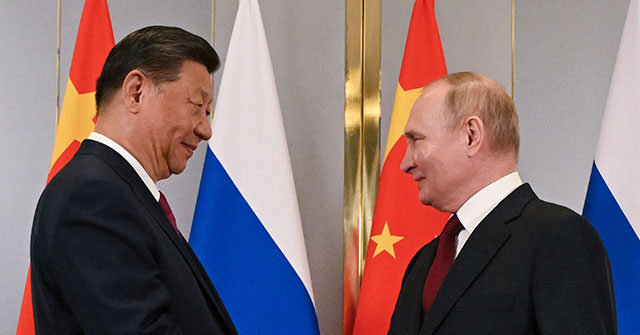Russian Finance Minister Anton Siluanov recently announced the BRICS economic bloc’s ambitions to establish its own international payment system, driven by perceived overreach and vulnerability associated with the existing Western financial framework, particularly as influenced by U.S. sanctions. The motivation behind this initiative stems mainly from the sanctions imposed on Russia following its military actions in Ukraine in February 2022. These sanctions have compelled Russia to pursue alternatives to the SWIFT payment system, which is predominantly used by Western nations to manage international financial transactions. Siluanov emphasized the group’s commitment to creating an independent system that operates free from political pressures and focuses on fostering economic growth and improving the living standards of citizens within member nations.
BRICS was founded as a coalition comprising Brazil, Russia, India, and China, which later included South Africa, as a counterweight to Western-led financial organizations like the G7. In early January 2024, BRICS expanded its membership to include five additional nations: Egypt, Iran, Saudi Arabia, the United Arab Emirates, and Ethiopia. Although Argentina was slated to join as a member, it withdrew following the election of the pro-market libertarian President Javier Milei. Furthermore, thirteen other countries are closely collaborating with BRICS, expressing their intentions to apply for membership in the future. The group has long sought mechanisms to promote trade amongst its members without engaging with the Western-dominated financial systems or relying on the U.S. dollar.
Although Siluanov claims that BRICS is “beyond politics,” the bloc’s formation is significantly rooted in political motivations, particularly the collective grievances of nations with poor human rights records that are adamantly opposed to Western sanctions. The BRICS nations also have historically resisted major commitments to climate change initiatives, largely because the leading member countries emit more greenhouse gases than the rest of the world combined. Recent trends indicate a shift in attitudes towards climate change enforcement, prompting concerns among these nations about potential vulnerability to environmental sanctions, thus increasing their urgency for an alternative financial system insulated from external pressures.
In envisioning BRICS’s future, Siluanov proposed that member nations could rely on their national currencies, along with digital currencies, to create a robust alternative to SWIFT. Additionally, he underscored the interest from various developing nations within the “Global South” to join this evolving financial network, indicating a broader consideration of non-Western nations seeking to establish economic systems independent of established Western frameworks. This interdependence aligns with the bloc’s ambition to solidify their economic relevance on the global stage while seeking security and governance free from Western scrutiny.
The BRICS initiative aims not just to create an alternative to SWIFT but to establish new financial institutions that could replace the roles of the International Monetary Fund (IMF) and the World Bank, institutions that Siluanov claims do not adequately serve the interests of BRICS member nations. He advocated for the development of new organizations formed within the BRICS community that could echo the functions of historical frameworks like the Bretton Woods system, initially designed to stabilize the global economy post-World War II. Russia and other BRICS members have voiced dissatisfaction with the existing international financial architecture, particularly stemming from fears around U.S. and European sanctions that could arise from engaging in transactions through established systems.
Despite these lofty ambitions, BRICS has made limited headway toward establishing a complete alternative financial system. The New Development Bank (NDB), originally established as the BRICS Development Bank in 2015, is one of the few concrete projects undertaken by the bloc. The bank’s goal is to provide financial support primarily for sustainable development projects within member countries. However, it faces criticism regarding its limited size compared to the IMF and World Bank, fiscal strains from an expanding member base, and inadequate use of local currencies for its loans, with only about twenty-five percent of its lending occurring outside of U.S. dollar transactions. This situation underscores the challenges BRICS must navigate as it attempts to establish a viable and robust alternative to Western financial institutions while grappling with internal limitations and external geopolitical pressures. Ultimately, the evolution of BRICS’s financial system will be closely intertwined with the political dynamics surrounding its membership and the broader shifting landscape of global economic power.

